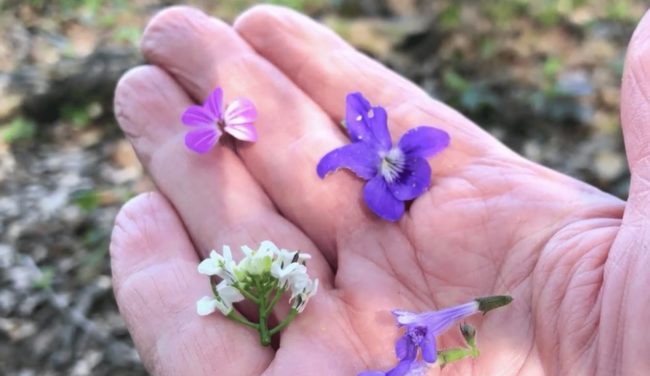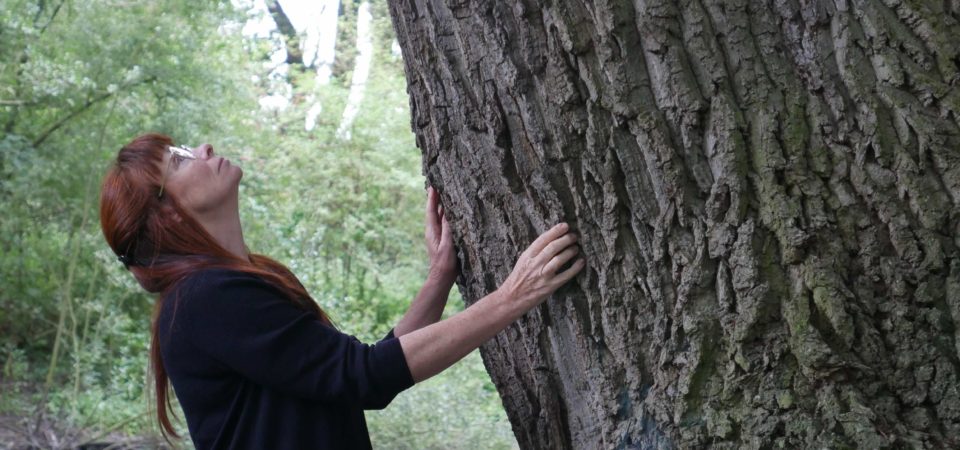The ability to perceive or think differently is more important than the knowledge gained. – David Bohm
A friend told me about an experience she had, which I return to often. The facts are very simple: she went for a swim in the sea. And she had the feeling that the sea was glad of her company, was glad to feel seen, and loved.
Her experience has made a deep impression on me – I feel hopeful, knowing that when we reach out with openness, we as modern humans can still connect with these ancient ways of perceiving.
Imagine how quickly things could change if all humans had felt for themselves, undeniably, the personhood of the seas. If they had “met” Ocean with mutual respect and compassion, and not only understood the environmental situation intellectually but also had a relationship with Ocean, feeling care and protectiveness. If that was so, I believe our human collective actions that impact water could change very quickly.
But how to unearth that open state, where such experiences are possible? Surely that way of being has been educated out of most people in industrialized society?
In fact, I am happy to tell you that as a nature connection guide, I commonly witness people rediscovering touching meaningful relationships with the natural world. All it takes is for us to slow down, stop the brain’s endless chatter, and perceive the world directly through our physical senses. It’s that simple.
Of course, our modern conditioning gets in the way. Our educated mind tries to derail attempts to sink into this sensitive understanding of our own place in the beautiful interconnected web of life. And so, in the practice of Forest Bathing, we offer the mind some simple fun activity to distract it long enough for the magic to happen. And once we have experienced that most ancient and innate way of being, with surprise and wonder, we can then continue to explore and deepen our relationship.
Why is this important? Surely connecting with nature is a nice thing to do for our well-being, but hardly a solution to the current multiple global crises. Surely instead we need to be using our abstract thought to devise technological solutions. My answer is that we have been trying that for quite a while, and it’s not going so well is it? Maybe it’s time to reframe our perspective.
Bayo Akomolafe often quotes a saying: “These times are urgent, we must slow down.”
Being called to pause in the middle of a crisis can seem senseless, even dangerous, when we feel an urgency for action. Yet a growing movement of people is discovering the power of alert stillness to transform our perceptions of any given situation. From that calm, open, focused state, we can explore the situation in fresh ways, and find novel and creative responses that would not have been available from a pressured intellect.
One way we can find this inner stillness is by connecting with the natural world–slowing down, noticing, and rediscovering a profound sense of wonder, belonging, and timelessness; something we may not have felt since childhood.

Connecting with nature helps us enter that light restful awareness, by bringing us to the present moment and engaging our rest-and-digest parasympathetic state. This state greatly enhances our personal effectiveness, at a time in history when we all need to be at our most functional. It has been shown to improve mental clarity, free-thinking, memory, focus, problem-solving, and creativity.
Many practices facilitate entering that state, for example, meditation, and each person will have their own preference. Forest Bathing has some additional qualities, including:
- There are many kinds of intelligence, besides the left-brain intellectual ones that are usually developed in industrialized world systems. Nature connection develops direct perception through the senses, and helps people engage a broader bandwidth of processing skills. It validates people who learn best through their bodies–kinaesthetic and visual-spatial learners, who often do not thrive with linguistic/mathematical methods, and so their valuable alternative perspectives can be lost to society. And people who are strong in analytical abstract thinking, who are often in strong decision-making/influencing positions (e.g., education, law, commerce, media, politics), can benefit from opening their understandings to more holistic ways of perceiving.
- Nature connection commonly brings us to experience feelings of awe, which is known to lead to a greater perspective, and more prosocial behaviors (it’s been shown to increase inclination to kindness, cooperation, interest in the good of the community, and reduce materialism and Us vs.Them thinking).
- By keenly observing the natural world, people discover for themselves the incredibly rich and complex inter-relatedness of life on Earth. They start to see metaphors and parallels in human society, and can then apply these insights in their own work or community, to develop more holistic solutions.
- And finally, maybe most importantly for me, when we connect with nature, we fall madly in love! There is a magic that happens when we awaken to our most ancient way of being with nature–people commonly experience wonder, even transcendent states, and fall in love with our achingly beautiful and precious planet. And what we love, we protect.
My approach to Forest Bathing is to connect with the nature around us in our daily lives. In the accredited online course “Coming to Our Senses,” students are guided through a series of simple fun sensory activities in their own neighborhood. We don’t need a pristine natural beauty spot to feel this connection. Stopping to watch a bird in flight from our window, sitting under a tree in our lunch break, gently touching the wildflowers growing in the pavement on the way to our local shop–these precious moments of connection can turn our perception of reality on its head. For me, connecting with nature throughout the day, wherever we live, holds one key to the complex challenges we face.
Decades ago I was working with urban children, taking them into local woodland to practice Forest Bathing. I was struck by how some of them had had no contact with the natural world until then. I remember so clearly a little girl saying excitedly “Miss, Miss, this is a countryside, isn’t it? I know a countryside–there’s one near my aunty’s house!” I was touched by her obvious enthusiasm, but shocked to realize that rather than seeing the world as a landscape with cities dotted within it, she saw the world as a huge city, with little patches of nature within. This story holds a deep message for me about the power of perception.
Through my work in the gentle art of Forest Bathing, I commonly see people discovering that for them, nature connection is a radical act, it is eco-activism. Personally, it strengthens my defiance: “I do not consent to seeing the world the way my society presents it to me. I will see reality through a different lens, through the lens of the natural world.”
And connecting with nature in my daily life helps me keep that lens polished and clear. I invite you to join the movement and share this beautiful way of being, with whoever you can, at every opportunity.
The way we see the world shapes the way we treat it. – David Suzuki
 Jan Wood is a certified International Forest Therapy Guide, who began working in Nature Connection over 30 years ago.
Jan Wood is a certified International Forest Therapy Guide, who began working in Nature Connection over 30 years ago.
Also practicing as a certified physical therapist, she initially trained in Forest Bathing for its documented beneficial effects on health and wellbeing (see a selection of studies here). Then, after witnessing people’s sometimes transformative response to unearthing this direct personal connection, she realized Forest Bathing has power at a societal level. She created the social enterprise Feelgood Forest Bathing to bring this work to a global audience, through experiential online courses. Students are guided to connect with nature in their neighborhood and are supported by her and their fellow students in an online community.
The course is accredited for international Continuing Professional Development learning credits, so students can benefit their own wellbeing while learning skills, and explore how to integrate them into their own fields of work. You can find out more at https://feelgood-forest-bathing.com/.
She is passionate about the potential of Nature Connection, both for individuals and society and so offers funded scholarships to people who are working for Mother Earth in some way. She welcomes collaboration with others in any field, for the common good of all beings.
Jan lives in the UK and when not working, she is often to be found walking in nature, gardening in her vegetable plot, or learning more about the exquisitely complex world we all share.
The MAHB Blog is a venture of the Millennium Alliance for Humanity and the Biosphere. Questions should be directed to joan@mahbonline.org
The views and opinions expressed through the MAHB Website are those of the contributing authors and do not necessarily reflect an official position of the MAHB. The MAHB aims to share a range of perspectives and welcomes the discussions that they prompt.
